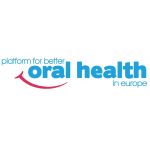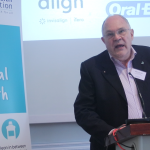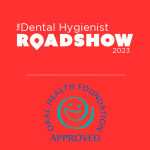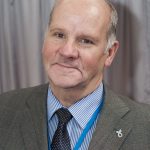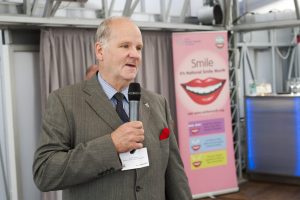As the government launches a new consultation into water fluoridation in the North East, the Oral Health Foundation is encouraging dental professionals to seize this opportunity by liaising with local MPs for further expansion of the scheme across the UK.
The consultation opened earlier this week [25 March] with plans to extend the region’s water fluoridation scheme to an additional 1.6 million people, targeting vulnerable populations, particularly children and young adults.
Although the benefits of water fluoridation to oral health are well established and accepted, as few as six million people in England live in areas with fluoridated water.
The Oral Health Foundation believes water fluoridation should be more widely implemented in the UK and wants dental professionals to play a key role in promoting the benefits to policymakers.
Dr Nigel Carter, Chief Executive of the Oral Health Foundation, says: “By participating in the North East consultation, you have the power to improve oral health outcomes for millions of people for generations to come. As dental professionals, we witness the devastating effects of tooth decay daily, placing us in a unique position to provide invaluable insights into its true impact on patients’ oral, general, and mental health.
“This consultation also presents a critical opportunity to build relationships with our local MPs and advocate for water fluoridation plans in all our respective areas. The success of the North East consultation will only strengthen our cause to expand water fluoridation across the UK.”
Although oral health is improving in England, the oral health survey of five-year-olds in 2019 showed that just under a quarter have tooth decay.
Each child with tooth decay will have on average three-to-four teeth affected. For those children at risk, it can happen early in life. The oral health survey of three-year-olds in 2020 found that 11% had visible tooth decay, with on average three teeth affected.
A 2022 health monitoring report showed five-year-olds in areas with fluoridated water in England were less likely to experience tooth decay compared to areas without fluoride and are less likely to be admitted to hospital to have teeth removed.
Professor Sir Chris Whitty, Chief Medical Officer for England, adds: “Water fluoridation can reduce the prevalence of tooth decay and improve dental health equity across the UK. It should be seen as a complementary strategy, not a substitute for other effective methods of increasing fluoride use such as tooth brushing.”
Interim Chief Dental Officer for England Jason Wong says: “Reducing tooth decay supports wider health and wellbeing and reduces health inequalities by narrowing differences in dental health between more and less deprived areas, and this important measure forms a key part of our dental recovery plan which aims to improve access to NHS dental services across England.”
Under the Health & Care Act of 2022, the Secretary of State was given the authority by Parliament to implement new water fluoridation programmes. These initiatives have the backing of local authorities in the area, and the water company involved has prior experience in managing such schemes.
The government’s consultation, titled Community water fluoridation expansion in the north east of England can be found at www.gov.uk and will last 12 weeks. Following this, it will collect and review the feedback before making a decision on whether to extend the scheme.
You can find the contact details of your local MP by visiting www.members.parliament.uk/FindYourMP






